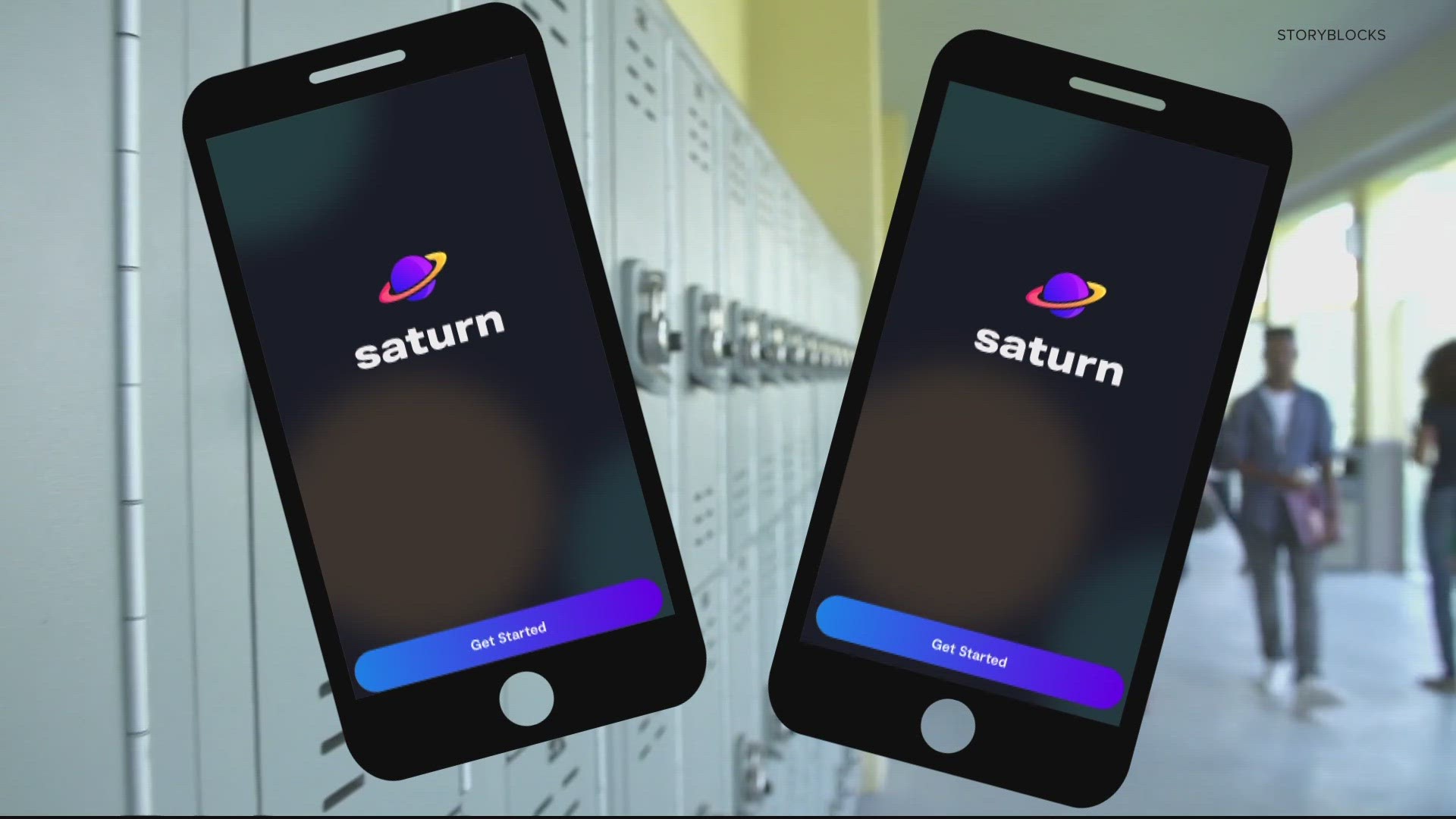WASHINGTON — Meetings to attend, supplies to purchase, and routines to get into: it can be hard to keep up with everything this back to school season, and one app marketed as a way for teens to stay on schedule is raising some privacy concerns among parents.
THE QUESTION:
Is the Saturn app accessible to non-students?
THE SOURCES:
- Chris McKenna, founder of Protect Young Eyes
- The Federal Trade Commission
- The Saturn App website
THE ANSWER:
Yes, the Saturn app has been accessible to non-students, but it’s getting more difficult.
WHAT WE FOUND:
A new fixture in the digital universe, Saturn is billed as a tool for “schedules, events, and friends.” The description explains users can “see what friends are doing in real-time, chat with them, organize events, and share schedules all in one place.”
While it’s become one of the most downloaded free apps in Apple’s App Store (right now, it is only available for iPhone), searches for “Saturn app concerns” and “is Saturn app safe” are surging on Google. A Verify viewer sent us one of the widely-shared posts on Facebook warning of the dangers of the app: that it offers no privacy protections for the kids the app is marketing to, allowing anyone to log in and see where they are throughout their day.
RELATED: Gmail issues at Arlington Public Schools fixed after parent complaints of emails bouncing back
Chris McKenna is the founder of Protect Young Eyes, a group focused on tech best practices for kids and their families. He tested the app and was so concerned with what he found, he posted an Instagram reel on the topic that's now gone viral.
“We were easily able to access whole lists of students all over the country,” he said.
The app organizes users by schools, but McKenna found it wide open to non-students, like himself.
“It didn't matter that I was a 40-year-old man without a verified school email address. I could see students, hundreds and thousands of students all over the country. I could see their connected social media accounts like Instagram, Snapchat, TikTok and Venmo," McKenna said.
After he and others online shared their concerns, Saturn released an update this week — and another Thursday — strengthening the high-school-email verification requirements.
VERIFY tested it on two phones. One blocked us from making an account at all, but the other let us in. We couldn’t do much without verifying a school email.
"We’ve released a new version of Saturn — our second in a week — that raises the bar for security. We’re also actively removing every suspected non-student account on the platform," reads an update on the Saturn website.
But to McKenna, this is just the latest example of digital products launching without children's safety in mind.
"We don't ship helmets and cribs and bicycles to children that are inherently dangerous, that weren't designed with children in mind. They have a responsibility," he said. “We're always in a game of whack-a-mole, of a Reel like mine needing to go viral, needing for thousands of parents to share it, for an app to care to make choices that it should have made in the first place,” said McKenna.
Though the app appears to be listening to concerns, its critics point out that even it's intended use still makes a lot of personal information available to other student users.
“My precise schedule, exactly where I am at, what times of day during the school day is pretty important information,” said McKenna.
Even before going to worst-case-scenarios involving targeted violence or “creepy” schoolmates being able to know a student’s every move, McKenna says it’s important to remind students that over-sharing doesn’t need to be the default.
“Give them some agency and information to decide whether or not this is the type of information they want to share with some random junior in your 2,000-student high school?” he said. “I understand those are complex places.”
The FTC warns: apps are increasingly deceptive in how they use kids’ information.
Though stated clearly on the Saturn website, it’s not immediately obvious that the app isn’t actually affiliated with the schools it lists.
We reached out to all of our large local school districts: Loudoun and Prince William Counties say they’ve actually blocked the app from their networks.
McKenna suggests schools add “software supply” lists to keep parents in the loop with what online apps their kids really need.
While Saturn developers continue to make changes, McKenna advises: proceed with caution — on this, and any other app marketed to young people.
“Be curious before you're condemning, ask questions, because there is going to be another app in six months, and if all you've done is create a culture around digital conversations that are always punitive and horrible and nasty, then they're not going to tell you about it," he said.
This is a situation in which advocates say it truly takes a village.
"There is very little on the front-end of the development of these kinds of applications that creates a framework that actually causes them and compels them to design with children in mind in the first place," he said. "Schools have a responsibility to do more, to equip children to be good and responsible digital citizens in 2023. Parents certainly have a responsibility, and the children themselves have some responsibility to have tools in their tool belt to make good choices. "

